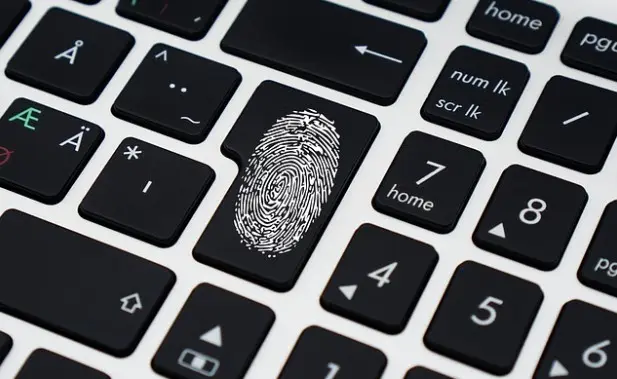In today’s world, data breaches and cyber attacks are all too common and can lead to severe consequences for both individuals and businesses. One of the most effective ways to protect your system and data is through encryption. Not only does encryption provide an additional layer of security, but it can also replace traditional firewalls. This article will explore encryption, why it’s important for system security, how it compares to firewalls, and how to implement it in your system effectively.

What is Encryption?
Encryption is a method of encoding information to keep it secure and confidential. It involves converting plain text into a code that can only be deciphered by the intended recipient. This process ensures that sensitive data remains protected from unauthorized access and is an essential component of system security.
Encryption is used in various applications, including email communication, online banking, and e-commerce transactions. It is also used to secure sensitive data stored on computers and other electronic devices.
How Encryption Works
The process of encryption involves scrambling the original message into an unreadable format using a unique key. The encrypted message is then sent to the intended recipient, who uses a corresponding key to decrypt and read the message.
During transmission, encrypted data is protected from interception and theft. Even if an unauthorized party intercepts the message, they will not be able to read it without the corresponding key. This ensures that only authorized parties can access the data.
In summary, encryption is an essential tool for securing sensitive information in today’s digital age. Understanding the different types of encryption and how they work is crucial for choosing the right method for your system based on your security needs.
The Importance of System Security
System security is a crucial aspect of any organization that wants to protect its sensitive data and prevent unauthorized access to its systems. In today’s digital age, cyber attacks are becoming increasingly sophisticated, and businesses must take proactive measures to safeguard their systems and data.
Protecting Sensitive Data
Encryption provides a secure way to protect sensitive data such as personal information, financial data, and confidential business documents. This is particularly crucial for businesses that handle customer information and must comply with strict data protection laws. Because encrypted data can only be read by someone who has the key to decrypt it. This means that even if a hacker gains access to your system, the information will be useless to them.
Implementing encryption can help businesses avoid costly data breaches and protect their reputation by ensuring that sensitive data is kept secure. Implementing encryption can also help businesses comply with industry regulations.
Ensuring Business Continuity
System downtime and data breaches can be costly and damaging to a business. Equipment failure or cyber attacks can disrupt operations, damage reputation, and lead to financial losses. Implementing encryption can further help ensure business continuity by providing an extra layer of security and data protection.
Encryption can also help businesses recover from data breaches more quickly by ensuring that data is backed up and can be easily restored. Overall, implementing strong system security measures such as encryption is essential for businesses that want to protect their sensitive data, prevent unauthorized access, and ensure business continuity.

Comparing Encryption to Traditional Firewalls
How Firewalls Work
Traditional firewalls protect against unauthorized access to a network by filtering traffic based on predefined rules. Firewalls can be effective but are limited in their ability to prevent cyber attacks and do not offer the same level of protection as encryption.
Firewalls operate as a barrier between a trusted, secure internal network and untrusted outside networks, such as the internet. They examine all traffic that passes through them and block any traffic that does not meet the predefined rules. Firewalls can be configured to block traffic from specific IP addresses, block certain types of traffic, or allow only certain types of traffic. This makes them a useful tool for network security, but they have limitations.
Limitations of Firewalls
Firewalls cannot protect against all cyber attacks. They only prevent any traffic that breaches their rules, leaving vulnerabilities in the system that can be exploited. Attackers can use techniques such as phishing, social engineering, or exploiting a vulnerability in an authorized user’s system to gain access to the network. Once inside, they can bypass the firewall and gain access to sensitive data.
Additionally, firewalls do not offer sufficient protection for sensitive data. While they can prevent unauthorized access to the network, they cannot prevent authorized users from accessing sensitive data. This means that if an authorized user’s account is compromised, an attacker can gain access to sensitive data without having to bypass the firewall.
Firewalls cannot replace encryption. While they can provide some level of protection, encryption is necessary to ensure that sensitive data is protected from unauthorized access. Encryption makes data unreadable to unauthorized parties, even if they gain access to the network. This provides an additional layer of protection that firewalls cannot offer.
Advantages of Encryption over Firewalls
Encryption uses complex algorithms to scramble data, making it unreadable without the proper decryption key. Additionally, encryption can be used to protect sensitive information even when it is in transit. This provides continuous protection against cyber attacks. For example, when a user enters their credit card information on a website, encryption is used to protect that information as it is sent over the internet. This ensures that even if an attacker intercepts the data, they cannot read it without the decryption key.
In summary, while firewalls are an important tool for network security, they have limitations. Encryption provides a higher level of security and is necessary to protect sensitive data from unauthorized access. By using both firewalls and encryption, organizations can create a comprehensive security strategy that protects against a wide range of cyber threats.
Choosing the Right Encryption Solution
Choosing the right encryption solution depends on the type of data you need to secure. Symmetric-key encryption and public-key encryption are two popular options.
- Symmetric-Key Encryption: Symmetric-key encryption is commonly used for low-level security needs, such as personal emails, instant messaging, and file sharing. It is a simple and fast encryption method that uses the same key for both encryption and decryption. However, the downside of symmetric-key encryption is that if the key falls into the wrong hands, the data can be easily decrypted.
- Public-Key Encryption: If you need a higher level of security, such as in transactions dealing with financial or medical data, you should consider using public-key encryption. Public-key encryption uses two keys, a public key for encryption and a private key for decryption. The public key can be shared with anyone, but the private key must be kept secret. Public-key encryption is more secure than symmetric-key encryption because even if the public key is compromised, the private key is still needed to decrypt the data.
Integrating Encryption with Existing Security Measures
Encryption should be integrated with other security measures such as access control, firewalls, and antivirus software to provide comprehensive system protection. Encryption can be used in conjunction with these tools to provide an additional layer of security in case of a breach or attack. For example, if a hacker gains access to your system, they may be able to bypass your firewall and antivirus software. However, if your data is encrypted, the hacker will not be able to read the data without the encryption key. This can help prevent data loss and protect your organization’s reputation.
Best Practices for Encryption Key Management
Encryption keys are critical to the encryption process, and their security must be maintained. Here are some best practices for encryption key management:
- Store keys securely: Encryption keys should be stored in a secure location, such as a hardware security module (HSM) or a key management system (KMS). These solutions provide secure storage and management of encryption keys.
- Update keys regularly: Encryption keys should be updated regularly to prevent unauthorized access. This can be done by rotating keys or using key derivation functions to generate new keys from existing ones.
- Back up keys: Encryption keys should be backed up to prevent data loss in case of a system failure or disaster. Backups should be stored securely and tested regularly to ensure they can be used in an emergency.
- Limit access to keys: Access to encryption keys should be limited to authorized personnel only. This can be done through role-based access control (RBAC) or other access control mechanisms.
By adopting best practices for encryption key management and storage, you can help ensure the security and integrity of your encrypted data.
Conclusion
Encryption is a powerful tool for protecting your system and data against unauthorized access and cyber attacks. It can also offer a higher level of security than traditional firewalls while ensuring business continuity and regulatory compliance. Implementing encryption can seem daunting, but using best practices and following these guidelines can keep your system secure and replace your firewall. Get an objective assessment of your security system to ensure that you offer a private online environment and meet industry standards. Contact PPGS ™ today for more information.
